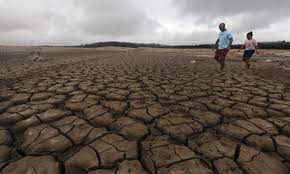
Zambia has officially declared the ongoing drought in the country a national disaster, as President Hakainde Hichilema expressed concern over its severe impact on the agricultural sector, affecting over one million families. In a televised address from Lusaka, the capital, Hichilema highlighted that the nation has experienced five weeks without rain, compounding the effects of a previous dry spell and flooding from last year.
President Hichilema emphasized the extensive damage caused by the prolonged drought, which has affected 84 out of 116 districts in the country. He attributed the crisis to climate change and the El Nino weather phenomenon, posing threats to national food security, water, and energy supply, particularly Zambia’s dependence on hydroelectric power.
To address the crisis, Hichilema announced the declaration of the prolonged drought as a national disaster, allowing for the mobilization of additional resources. The drought is expected to persist until March, with an estimated loss of one million hectares of planted crops out of 2.2 million.
Humanitarian aid will be provided to prevent hunger, with a call for assistance from cooperating partners beyond grain relief. Plans are also in place to import and ration electricity to sustain industries, particularly the mining sector, vital for Zambia’s economy as the second-largest copper producer in Africa.
Acknowledging the energy deficit of up to 500 megawatts, President Hichilema outlined the re-alignment of the 2024 national budget to allocate more resources towards mitigating the drought’s impact. He highlighted the dire situation of Zambia’s debt restructuring efforts under the G20 Common Framework, urging official and private creditors to expedite the process to prevent further economic strain.
The El Nino climate pattern, currently affecting global temperatures, exacerbates the crisis, with implications such as wildfires and record heat worldwide.
